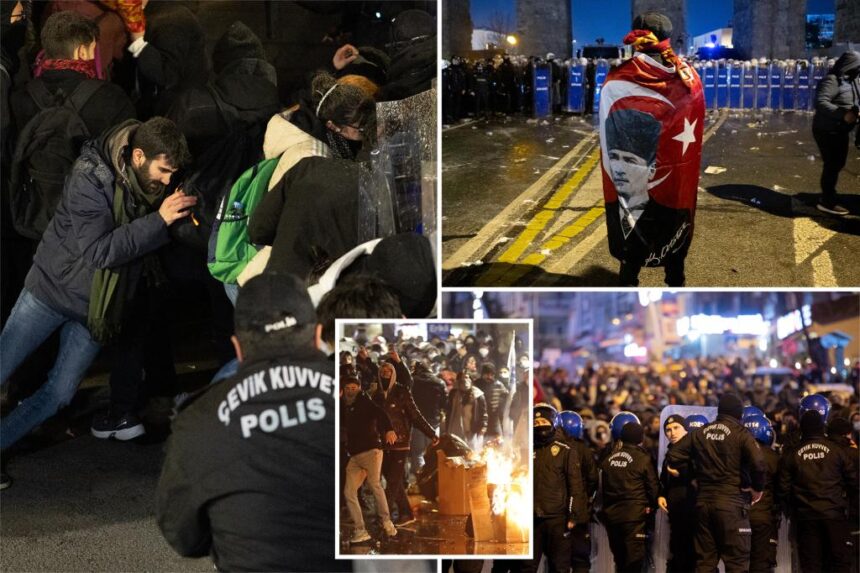Turkey is currently experiencing a wave of civil unrest, with over 340 protestors being arrested during a third day of demonstrations demanding President Recep Tayyip Erdogan’s resignation. The protests were ignited by the arrest of Istanbul Mayor Ekrem Imamoglu, a prominent political rival of Erdogan, on charges of financial crimes and alleged links to Kurdish militants.
Imamoglu’s arrest, deemed politically motivated by his supporters, occurred just before he was nominated as a presidential candidate for the country’s main opposition party in the upcoming 2028 election. Following his arrest, tens of thousands of Turks took to the streets in more than a dozen cities, despite a government-imposed ban on public gatherings.
The Turkish interior ministry issued a warning against “chaos and provocation,” emphasizing its intolerance towards unrest. Additionally, Turkish police detained 56 individuals for social media posts that were perceived to incite further discord. Moreover, social media giant X suspended accounts of Turkish opposition figures, as reported by Politico.
Erdogan, who has held power in Turkey for over two decades, faces mounting pressure from the public as calls for his resignation grow louder. The situation remains tense as protestors continue to demand political accountability and change.
The developments in Turkey underscore a complex political landscape and a deepening divide between the government and opposition forces. As the country grapples with escalating tensions, the future remains uncertain, with the potential for further unrest and political upheaval on the horizon.
The rewritten content seamlessly integrates into a WordPress platform, maintaining the essence of the original article while presenting a fresh perspective on the ongoing events in Turkey.



![Mahama for Life - Davido as he arrives in Ghana ahead of RNAQ40 [VIDEO]](https://africanewsherald.com/wp-content/uploads/2025/03/Mahama-for-Life-Davido-as-he-arrives-in-Ghana-150x150.jpg)




